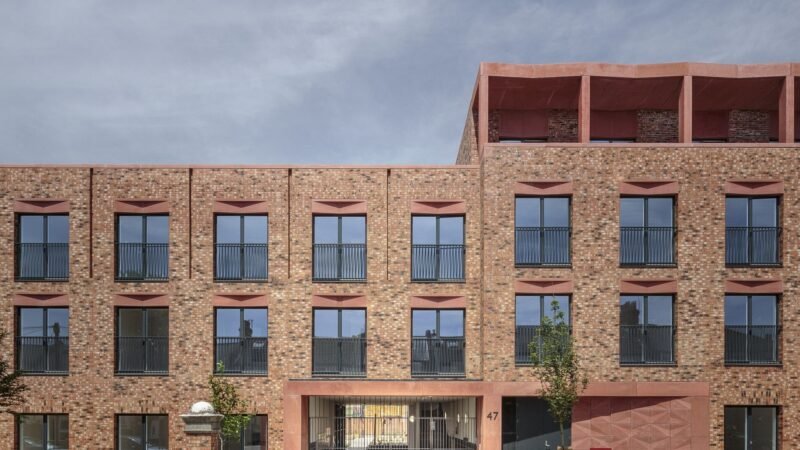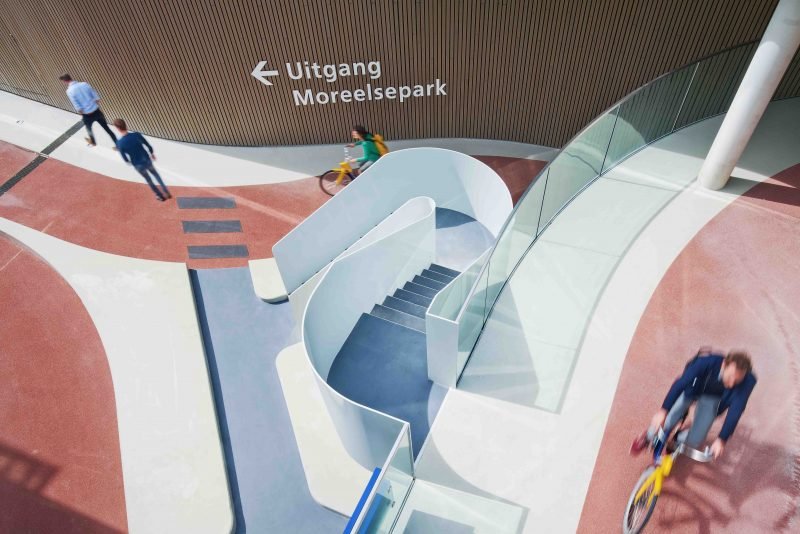Copenhagenize Launches Modular ‘Instant Bike Lane’ Kit
On his blog Copenhagenize, Mikael Colville-Andersen has been advocating cycling in cities for quite some years now. Time to come up with something new, he must have thought, so Colville-Andersen and his team recently launched the Copenhagenize Flow, a testing cycling path comprising of modular tiles that enables cities to test-run a bike lane for a certain amount of time.
In the past we’ve stated that bloggers are the new city branders, and that’s actually what Colville-Andersen has put into practice for Copenhagen by promoting the Danish capital as one of the world’s major bicycle capitals. Now the blogger also seems to become a new-style city planner, bringing self-initiated projects to the streets, for real.

After spending several years lobbying for (better) bicycle infrastructure in cities, Colville-Andersen must have noticed that a lot of cities have cold feet. The Copenhagenize Flow is a pre-fabricated, recycled modular system that clicks easily together in order to create separated cycle tracks of adjustable widths and unlimited lengths. It’s very easy, cost-effective and flexible to implement. City governments can kickstart their bicycle infrastructure network at a fraction of the price and test the results in modal shift and safety.

The system will be offered together with the expertise of the blogger and bicycle ambassador regarding how and where to implement the track. Installing Flow is as easy as building something with LEGO. A small team of people will be able to install 1 kilometer in one day, and a larger team will just make it go quicker and farther. No road workers are needed — even families with children can participate in the process, which makes the neighborhood co-owner of the idea of the new bike lane. After the pilot has finished, the system can be easily removed and installed in another place.

The reason to launch this project is the strong believe that the people of Copenhagenize have in the advantages of cycling as main mode of transportation cities, which is made clear through some stunning facts on the Flow website.
“Separated bicycle infrastructure encourages cycling like nothing else. It’s that simple. Installation of cycle tracks on streets increase cycling by 10% in Copenhagen. In Emerging Bicycle Cities, that number is far greater. We know that Best Practice design is the only way forward. Copenhagen-style, separated infrastructure is an evidence-based success over a century in the making. There are countless benefits to increasing the number of citizens on bicycles. Cities that take cycling seriously stand to reap fantastic socio-economic rewards. For example: €233 million is the net societal gain thanks to the cycling citizens in Copenhagen. € 0.23 is the net profit for every kilometre cycled in Copenhagen. € 0.16 net loss for every kilometer driven in the city.”



